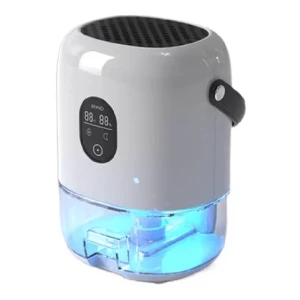Best Dehumidifiers for Home and Commercial Use in 2025
Excess humidity can damage your home, health, and belongings. A high-quality dehumidifier is the perfect solution to maintain optimal moisture levels. Whether for residential or commercial use, finding the right unit is crucial. This guide covers everything you need to know about dehumidifiers, including types, features, and how to source reliable models from China.
How to Find Reliable Dehumidifiers from China in 2025
China is a leading manufacturer of dehumidifiers, offering competitive prices and advanced technology. To find trustworthy suppliers, check Alibaba or Global Sources for verified sellers with high ratings. Look for certifications like CE, RoHS, and ISO to ensure quality. Request samples and test performance before bulk orders. Reliable manufacturers often provide warranties and after-sales support.
What Buyers Should Know Before Buying Dehumidifiers from China
Before purchasing, consider shipping costs, import taxes, and delivery times. Verify the supplier’s production capacity and lead times. Ensure the dehumidifier meets your voltage requirements (110V or 220V). Read customer reviews and ask for references. Negotiate pricing for bulk orders, but avoid suspiciously low-cost options that may compromise quality.
Types of Dehumidifiers
1. Refrigerant (Compressor) Dehumidifiers: Ideal for warm climates, these units cool air to remove moisture.
2. Desiccant Dehumidifiers: Best for colder environments, using absorbent materials to extract humidity.
3. Whole-House Dehumidifiers: Integrated with HVAC systems for large spaces.
4. Mini/Portable Dehumidifiers: Compact units for small rooms or travel.
Functions and Features of Dehumidifiers
Modern dehumidifiers come with smart features like auto-humidity sensors, timers, and Wi-Fi control. Look for energy-efficient models (Energy Star-rated) to save on electricity. Some units include air purification filters, while others offer continuous drainage options. Noise levels (dB) matter for bedrooms or offices.
Scenarios of Dehumidifiers
Home Use: Prevents mold in basements, protects wooden furniture, and improves air quality.
Commercial Use: Essential for warehouses, gyms, and hotels to maintain comfort and protect inventory.
Industrial Use: Used in manufacturing to protect sensitive equipment from moisture damage.
How to Choose Dehumidifiers
Consider room size (capacity in pints/day), energy efficiency, and noise levels. Check the water tank size or drainage options. Look for user-friendly controls and durability. Compare brands like Midea, Frigidaire, or Chinese OEM suppliers for cost-effective solutions.
Dehumidifiers Q & A
Q: How often should I run my dehumidifier?
A: Run it until humidity levels reach 30-50%. Use a hygrometer to monitor.
Q: Can a dehumidifier cool a room?
A: No, but it reduces humidity, making the air feel cooler.
Q: What’s the average lifespan?
A: 5-10 years with proper maintenance.
Q: Are Chinese dehumidifiers reliable?
A: Yes, if sourced from certified manufacturers.
Q: How to clean a dehumidifier?
A: Empty the tank regularly and clean filters every 2-3 months.


















